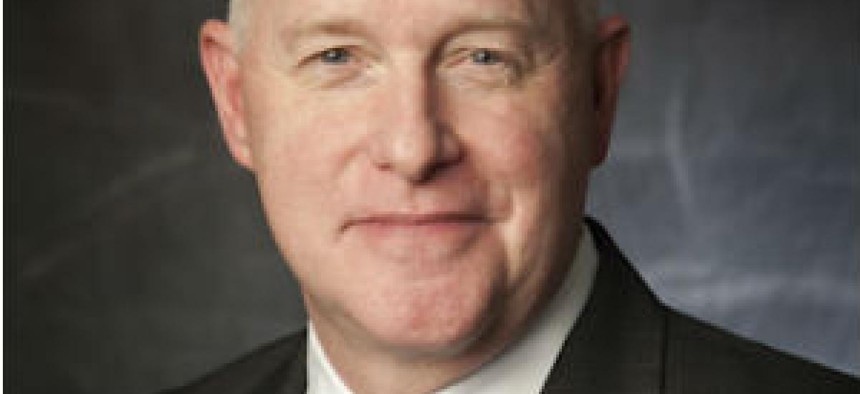Four keys to grooming millennials as future leaders

Every leader should actively engage the 20-somethings on their staff and start grooming them as future leaders, writes Bob Nunnally. He explains the four focus areas to engage and grow the millennials at your company.
Many years ago – more federal budget cycles than I care to remember – I learned a lasting lesson on being a leader. After receiving a big promotion, my boss said something that, at the time, was very perplexing: my number-one responsibility was to “grow my replacement.”
You can imagine the thoughts that came to mind, but, after putting ego aside, it all made sense. Leaders are supposed to serve as mentors, as “groomers” of the up-and-comers. And the next-generation – the Millennials (20-somethings) – is increasingly expecting this from us.
Did you know, according to Pew research, that half of Millennials would rather have no job than a job they don't like?
Or that Millennials are five times more likely than older employees to quit if they have a poor relationship with their manager?
An unhappy employee can be a costly proposition; the Society for Human Resource Management estimates the cost of replacing an employee to be between 50 percent and up to 400 percent of their annual salary.
So what does this mean?
As leaders, the grooming is up to us and our workforce demands personal and professional development. We must invest the time, effort and resources to ensure this takes place. If we don’t? Well, expect high turnover, poor retention and increased operating costs.
For the government consulting community, it means we need to ensure we are growing our replacements by developing their personal and professional skills in ways that create value for our companies and our clients.
Here are four key focus areas to consider to help grow your consulting replacements:
Expose them to the new
Learning occurs when we are exposed to new challenges, new methods of problem solving, or new activities that take us out of our comfort zone and force us to create solutions and make decisions.
Unfortunately, in consulting, we often rely on those “who have done it before” as we bid and execute engagements. Instead, we must create a place on our teams for our younger staff to be part of something new.
Maybe they “audit” the engagement by participating in select meetings outside of their billable work. Maybe they present wrap up summaries to their peers. Whatever the tactic, the objective is simple: ensure there are ways for younger staff to see and participate in what more senior staff is working on.
Encourage their curiosity
Using “because I said so” rarely works with children and doesn’t work at all with Millennials. And that’s a good thing.
I’ve found Millennials have a natural desire to ask “why” and we need to encourage them to do so. When they do, use that opening to communicate and educate.
For example, when we choose a solution framework or are debating how to staff or kickoff a project, we need to make a concerted effort to explain how we assessed the options and the process we used to make the decision.
When we only hand out a decision and do not provide information on how we made it, we miss a great opportunity to engage our younger staff and help build their decisional toolkit.
Promote the personal touch
The advent of social media and mobile technologies has created a true double-edged sword: constant contact, but the potential loss of the personal touch that is critical for our business.
I was recently in a cab with two younger consultants who elected to text back and forth instead of talking…they were literally two feet apart (and the texts were not about the boss in the cab).
We should embrace new ways of networking, crowdsourcing and communications, but at the same time we need to promote the proven advantages of developing personal relationships and the trust that comes with them.
To ensure our teams do not go heads down and stay there, consider techniques like having them write hard copy thank you notes to clients and fellow staff, or put a “ban” on texting during meetings.
Tap into the natural affinity to do good
From my experience, Millennials have an amazing propensity to do good, serve as change agents and focus on positive improvement.
We need to harness this energy and optimism and enable them to contribute to cultural transformation within government. I believe it is possible to do well and do good – that we can be commercially successful while delivering positive improvements for our clients and our communities.
Ask your younger staff about their passions, about the type of “service” that inspires them (you may be surprised in a good way) and then work with them to connect it to company goals and interests. For example, a passion for green living could be a strong catalyst for a new client offering.
Bottom line, we have a responsibility to grow our replacements, after all, our clients are going to be relying on them to continue the work we have spent decades trying to perfect. If we focus on developing these individuals – providing resources and opportunities combined with mentorship and direction – we’ll leave our companies and our clients in good hands.
As experienced consultants, the responsibility is ours. In the words of Ralph Waldo Emerson, “Our chief want is someone who will inspire us to be what we know we could be.” Did I just date myself?